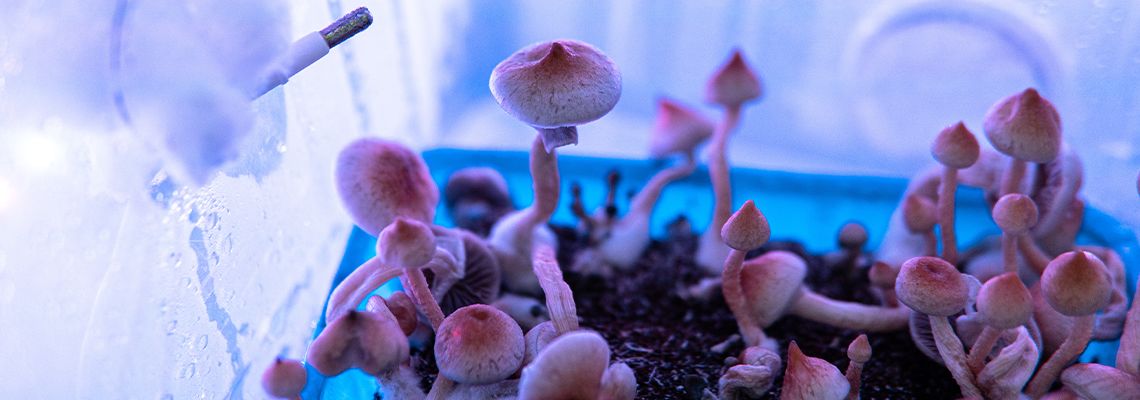
Are Magic Mushrooms Legal in California?
Magic mushrooms, often associated with psychedelic experiences and personal exploration, have been a topic of controversy and fascination. If you live in California and were wondering whether these fungi are legal here, you've come to the right place.
McCready Law Group is here to shed light on the legal status of magic mushrooms in the Golden State and how I, Attorney Zack McCready, can help if you find yourself tangled in legal issues involving magic mushrooms.
My firm serves California residents in Long Beach, Santa Ana, Fountain Valley, Lakewood, and Cypress Hill. My background as a former LAPD police officer gives me invaluable insights into law enforcement tactics.
Let me take you through the legalities surrounding magic mushrooms and their use in California.
Understanding Magic Mushrooms
Scientifically known as psilocybin mushrooms, magic mushrooms contain psychoactive compounds that can alter perception, mood, and cognitive processes. While profound, these effects make them both intriguing and subject to complicated regulations.
The allure of magic mushrooms often stems from their ability to induce vivid hallucinations and profound personal insights. Users report a wide variety of experiences, from heightened creativity to spiritual awakenings.
However, the intensity of these effects means that their consumption is risky. Some individuals may experience anxiety or paranoia, particularly if taken without proper guidance or in an unsuitable setting.
Given these effects, there is a growing interest in the therapeutic potential of psilocybin, the active ingredient in magic mushrooms.
Research suggests it may have benefits in treating conditions like depression, PTSD, and anxiety. This has sparked debates about whether such mushrooms should remain illegal or be decriminalized for medicinal use.
Current Legal Status in California
In California, the legal status of magic mushrooms is primarily governed by state and local laws. Under state law, psilocybin is classified as a Schedule I substance, meaning it is illegal to possess and sell. This classification is based on the potential for misuse and lack of recognized medical benefits at the federal level.
However, the laws regulating magic mushrooms are evolving. Some cities within California, including Oakland and Santa Cruz, have moved to decriminalize the possession and use of magic mushrooms. This does not make them legal but does mean that they are a low priority for law enforcement efforts.
However, this decriminalization does not extend statewide; jurisdictions like Long Beach and Santa Ana still adhere to stricter regulations. Possession, sale, or distribution of magic mushrooms can still have significant legal consequences despite the shifting attitudes toward them.
As a result, individuals may still face federal charges of drug crimes if found in possession, even in areas that have reduced local penalties.
Potential Legal Consequences
Despite the burgeoning interest in the therapeutic uses of magic mushrooms, the legal repercussions for their unauthorized possession or sale remain serious. Individuals caught with psilocybin mushrooms in areas where they aren't decriminalized face potential charges ranging from misdemeanors to felonies.
These charges can result in hefty fines, community service, probation, or even imprisonment.
Even if certain cities decriminalize magic mushrooms, this does not offer blanket immunity from prosecution. The complexity of the legal system means that each case is unique, with outcomes heavily dependent on the specifics of the situation and the quality of legal representation.
One significant risk includes the potential for being charged with possession with intent to distribute, which carries stiffer penalties than simple possession. Any criminal conviction, especially one related to controlled substances, can adversely affect your employment opportunities and result in a permanent criminal record.
Another important consideration is the federal law, which overrides local decriminalization efforts, meaning federal prosecution remains a possibility. Involvement in criminal activity related to magic mushrooms can lead to ancillary legal troubles, such as charges for other controlled substances found in the same investigation.
Community Sentiment and Advocacy
The conversation around magic mushrooms isn't just happening in legal circles; it is also a topic of public interest and advocacy. Many California residents are advocating for broader decriminalization and even legalization for medicinal purposes. These efforts are often informed by emerging research that highlights potential health benefits.
Community sentiment plays a role in shaping the laws governing the use of magic mushrooms. In cities like Long Beach and Santa Ana, community advocacy groups are working to raise awareness about the potential positive impacts of psilocybin. This grassroots effort contributes to the dialogue and could influence future legislation.
These advocacy initiatives also focus on harm reduction strategies, aiming to educate the public on the safe and informed use of magic mushrooms.
Criminal Defense Attorney Serving Long Beach, California
Handling magic mushroom cases requires a lawyer who knows the law and has real-world experience. Attorney Zack McCready at McCready Law Group combines legal skills with a law enforcement background to serve clients in Long Beach, Santa Ana, Fountain Valley, Lakewood, and Cypress Hill.
If you need legal representation with your criminal defense case, related or unrelated to magic mushrooms, call McCready Law Group for a consultation.
